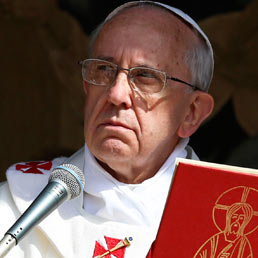
Jan 1, 2017 | Non categorizzato
 While the last century knew the devastation of two deadly World Wars, the threat of nuclear war and a great number of other conflicts, today, sadly, we find ourselves engaged in a horrifying world war fought piecemeal. […] wars in different countries and continents; terrorism, organized crime and unforeseen acts of violence; the abuses suffered by migrants and victims of human trafficking; and the devastation of the environment. […]Violence is not the cure for our broken world. Countering violence with violence leads at best to forced migrations and enormous suffering, because vast amounts of resources are diverted to military ends and away from the everyday needs of young people, families experiencing hardship, the elderly, the infirm and the great majority of people in our world. At worst, it can lead to the death, physical and spiritual, of many people, if not of all. To be true followers of Jesus today also includes embracing his teaching about nonviolence. […] When Mother Teresa received the Nobel Peace Prize in 1979, she clearly stated her own message of active nonviolence: ‘We in our family don’t need bombs and guns, to destroy to bring peace – just get together, love one another… And we will be able to overcome all the evil that is in the world.’ […] She bowed down before those who were spent, left to die on the side of the road, seeing in them their God-given dignity; she made her voice heard before the powers of this world, so that they might recognize their guilt for the crimes – the crimes! – of poverty they created. […]The decisive and consistent practice of nonviolence has produced impressive results. The achievements of Mahatma Gandhi and Khan Abdul Ghaffar Khan in the liberation of India, and of Dr Martin Luther King Jr in combating racial discrimination will never be forgotten. Women in particular are often leaders of nonviolence, as for example, was Leymah Gbowee and the thousands of Liberian women, who organized pray-ins and nonviolent protest that resulted in high-level peace talks to end the second civil war in Liberia. Such efforts on behalf of the victims of injustice and violence are not the legacy of the Catholic Church alone, but are typical of many religious traditions, for which “compassion and nonviolence are essential elements pointing to the way of life. I emphatically reaffirm that “no religion is terrorist. Violence profanes the name of God. Let us never tire of repeating: The name of God cannot be used to justify violence. Peace alone is holy. Peace alone is holy, not war! If violence has its source in the human heart, then it is fundamental that nonviolence be practised before all else within families. This is part of that joy of love which I described last March in my Exhortation Amoris Laetitia, in the wake of two years of reflection by the Church on marriage and the family. The family is the indispensable crucible in which spouses, parents and children, brothers and sisters, learn to communicate and to show generous concern for one another, and in which frictions and even conflicts have to be resolved not by force but by dialogue, respect, concern for the good of the other, mercy and forgiveness. I plead for disarmament and for the prohibition and abolition of nuclear weapons: nuclear deterrence and the threat of mutual assured destruction are incapable of grounding such an ethics. I plead with equal urgency for an end to domestic violence and to the abuse of women and children. In 2017, may we dedicate ourselves prayerfully and actively to banishing violence from our hearts, words and deeds, and to becoming nonviolent people and to building nonviolent communities that care for our common home. Nothing is impossible if we turn to God in prayer. Everyone can be an artisan of peace” Read the whole message.
While the last century knew the devastation of two deadly World Wars, the threat of nuclear war and a great number of other conflicts, today, sadly, we find ourselves engaged in a horrifying world war fought piecemeal. […] wars in different countries and continents; terrorism, organized crime and unforeseen acts of violence; the abuses suffered by migrants and victims of human trafficking; and the devastation of the environment. […]Violence is not the cure for our broken world. Countering violence with violence leads at best to forced migrations and enormous suffering, because vast amounts of resources are diverted to military ends and away from the everyday needs of young people, families experiencing hardship, the elderly, the infirm and the great majority of people in our world. At worst, it can lead to the death, physical and spiritual, of many people, if not of all. To be true followers of Jesus today also includes embracing his teaching about nonviolence. […] When Mother Teresa received the Nobel Peace Prize in 1979, she clearly stated her own message of active nonviolence: ‘We in our family don’t need bombs and guns, to destroy to bring peace – just get together, love one another… And we will be able to overcome all the evil that is in the world.’ […] She bowed down before those who were spent, left to die on the side of the road, seeing in them their God-given dignity; she made her voice heard before the powers of this world, so that they might recognize their guilt for the crimes – the crimes! – of poverty they created. […]The decisive and consistent practice of nonviolence has produced impressive results. The achievements of Mahatma Gandhi and Khan Abdul Ghaffar Khan in the liberation of India, and of Dr Martin Luther King Jr in combating racial discrimination will never be forgotten. Women in particular are often leaders of nonviolence, as for example, was Leymah Gbowee and the thousands of Liberian women, who organized pray-ins and nonviolent protest that resulted in high-level peace talks to end the second civil war in Liberia. Such efforts on behalf of the victims of injustice and violence are not the legacy of the Catholic Church alone, but are typical of many religious traditions, for which “compassion and nonviolence are essential elements pointing to the way of life. I emphatically reaffirm that “no religion is terrorist. Violence profanes the name of God. Let us never tire of repeating: The name of God cannot be used to justify violence. Peace alone is holy. Peace alone is holy, not war! If violence has its source in the human heart, then it is fundamental that nonviolence be practised before all else within families. This is part of that joy of love which I described last March in my Exhortation Amoris Laetitia, in the wake of two years of reflection by the Church on marriage and the family. The family is the indispensable crucible in which spouses, parents and children, brothers and sisters, learn to communicate and to show generous concern for one another, and in which frictions and even conflicts have to be resolved not by force but by dialogue, respect, concern for the good of the other, mercy and forgiveness. I plead for disarmament and for the prohibition and abolition of nuclear weapons: nuclear deterrence and the threat of mutual assured destruction are incapable of grounding such an ethics. I plead with equal urgency for an end to domestic violence and to the abuse of women and children. In 2017, may we dedicate ourselves prayerfully and actively to banishing violence from our hearts, words and deeds, and to becoming nonviolent people and to building nonviolent communities that care for our common home. Nothing is impossible if we turn to God in prayer. Everyone can be an artisan of peace” Read the whole message.
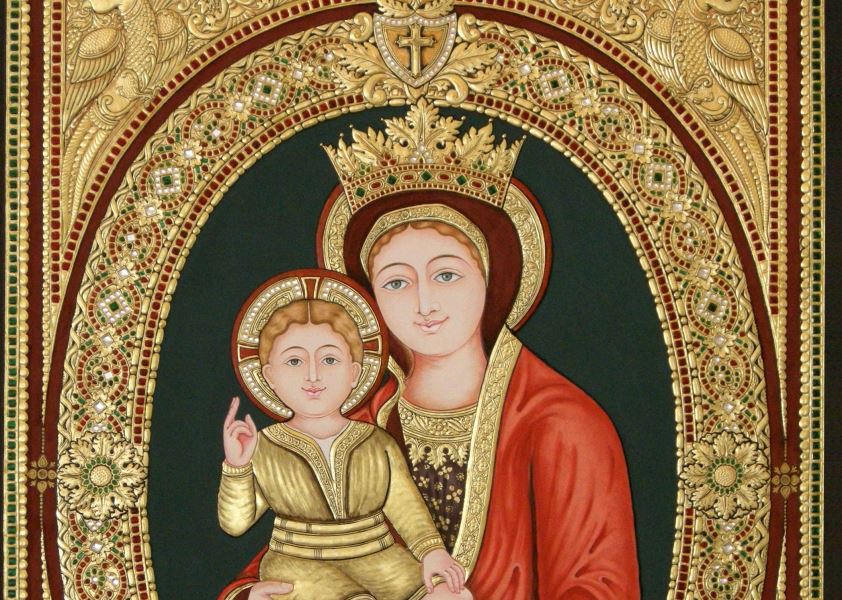
Dec 31, 2016 | Non categorizzato
 (…) History is all about wars and when we were children at school we almost learned that wars are good and holy, almost as if this is what protects our own land. (…) But if we hear the appeals of the Popes echoing in our hearts (…) we would hear their dread of war in the world and how their words, whether called for or not, appealed to leaders to try to appease anger and self-interest and to avert the terrible tragedy of war, through which everything is lost, while everything is gained by peace. This is because history is a succession of fratricidal conflicts between peoples who are brothers and sisters and who have been given a piece of land to cultivate and live on by the one Lord of the world. He blesses peace because he embodied peace. We see how one by one the Lord is conquering the hearts of his children of all nations, of all languages, transforming them into children of Love, Joy, Peace, Courage, and Strength. So we hope that the Lord will have mercy on this divided and wild world, on these peoples locked up in their own shell contemplating their own beauty – which is special for them – yet limited and inadequate, clinging on with clenched teeth to their own treasures, even those goods that could help other peoples where many are dying of hunger, and that he will break down the barriers and let charity flow continuously between one land and another, in a torrential flow of spiritual and material goods. We hope that the Lord will establish a new order in the world. He alone can make humanity a family and cultivate what is distinctive among peoples, so that the splendor of each people, placed at the service of the others, may shine out with the one light of life that beautifies the earthly homeland and makes it the waiting room of the eternal Homeland. Perhaps what I am saying sounds like a dream. Nonetheless – apart from the fact that if mutual love is the relationship among Christians, then the relationship among Christian nations cannot be other than mutual love because of the unchanging logic of the Gospel – there is a bond that already unites people strongly, proclaimed by the voice of the people and of all peoples, the people’s voice which so often is God’s voice. This hidden and protected bond in the heart of every nation is Mary. Who could take from the Brazilians the thought that Mary is the Queen of their land? And who would deny to the Portuguese that Mary is “Our Lady of Fatima”? Who would not allow the French the “beautiful little Lady of Lourdes”? Or the Poles Our Lady of Czestochowa? Or not let the English see their land as the “dowry of Mary”? And who could deny that Mary is the “Castellana of Italy” (…) All Christian nations have already proclaimed her their Queen, theirs and their children’s. But one thing is missing, and Mary cannot do it, so we have to help her. We need to collaborate so that Catholic peoples, united like many brothers and sisters, might go to her and together recognize her as Mother and Queen. We can enthrone her if, through our conversion, our prayers, and actions, we remove the veil that still covers her crown, (…) and lay down the piece of the world that is in our hands … at the feet of the greatest Queen that Heaven and earth can know. She is Queen of peoples, Queen of Saints, Queen of Angels, because when she was on earth she was able to sacrifice herself completely, the Handmaid of the Lord, and teach her children the way of unity, of embracing all peoples, so that earth might become as it is in Heaven. From Essential Writings p 222-233
(…) History is all about wars and when we were children at school we almost learned that wars are good and holy, almost as if this is what protects our own land. (…) But if we hear the appeals of the Popes echoing in our hearts (…) we would hear their dread of war in the world and how their words, whether called for or not, appealed to leaders to try to appease anger and self-interest and to avert the terrible tragedy of war, through which everything is lost, while everything is gained by peace. This is because history is a succession of fratricidal conflicts between peoples who are brothers and sisters and who have been given a piece of land to cultivate and live on by the one Lord of the world. He blesses peace because he embodied peace. We see how one by one the Lord is conquering the hearts of his children of all nations, of all languages, transforming them into children of Love, Joy, Peace, Courage, and Strength. So we hope that the Lord will have mercy on this divided and wild world, on these peoples locked up in their own shell contemplating their own beauty – which is special for them – yet limited and inadequate, clinging on with clenched teeth to their own treasures, even those goods that could help other peoples where many are dying of hunger, and that he will break down the barriers and let charity flow continuously between one land and another, in a torrential flow of spiritual and material goods. We hope that the Lord will establish a new order in the world. He alone can make humanity a family and cultivate what is distinctive among peoples, so that the splendor of each people, placed at the service of the others, may shine out with the one light of life that beautifies the earthly homeland and makes it the waiting room of the eternal Homeland. Perhaps what I am saying sounds like a dream. Nonetheless – apart from the fact that if mutual love is the relationship among Christians, then the relationship among Christian nations cannot be other than mutual love because of the unchanging logic of the Gospel – there is a bond that already unites people strongly, proclaimed by the voice of the people and of all peoples, the people’s voice which so often is God’s voice. This hidden and protected bond in the heart of every nation is Mary. Who could take from the Brazilians the thought that Mary is the Queen of their land? And who would deny to the Portuguese that Mary is “Our Lady of Fatima”? Who would not allow the French the “beautiful little Lady of Lourdes”? Or the Poles Our Lady of Czestochowa? Or not let the English see their land as the “dowry of Mary”? And who could deny that Mary is the “Castellana of Italy” (…) All Christian nations have already proclaimed her their Queen, theirs and their children’s. But one thing is missing, and Mary cannot do it, so we have to help her. We need to collaborate so that Catholic peoples, united like many brothers and sisters, might go to her and together recognize her as Mother and Queen. We can enthrone her if, through our conversion, our prayers, and actions, we remove the veil that still covers her crown, (…) and lay down the piece of the world that is in our hands … at the feet of the greatest Queen that Heaven and earth can know. She is Queen of peoples, Queen of Saints, Queen of Angels, because when she was on earth she was able to sacrifice herself completely, the Handmaid of the Lord, and teach her children the way of unity, of embracing all peoples, so that earth might become as it is in Heaven. From Essential Writings p 222-233
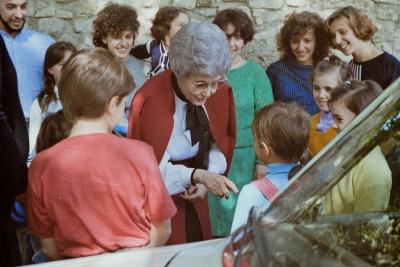
Dec 30, 2016 | Focolare Worldwide, Senza categoria
Download brochure with program Streaming event 11 March, 16:00-18:30 (CET, UTC+1)
A path o f life and thought to be shared throughout the year, at all latitudes. 50 years after its founding, there will be, in 2017 various local events and initiatives in various countries worldwide. A roadmap of life and thought in various phases will highlight the anthropological and universal value of the family in the perspective of “universal brotherhood,” and testify to the richness of social and cultural diversity, together with the ideal of unity concretised in family life. The central event will be held in Loppiano from 10 -12 March 2017. About 800 people from all over the world are expected to attend. The families will immerse themselves fully in the reality of the international town of the Focolare, and bear witness to Chiara’s dream in all the continents. In the morning there will be workshops for adults, youth, teenagers and children, held in collaboration with the parish movement, the gen3 and gen4 centres, the no-profit AFN and AMU. In the afternoon the meeting in the Auditorium will be aired via live streaming and will highlight the experts of family themes, who will be participating in the Cultural Seminar to be held at the Sophia University (10 -11 March 2017). This seminar with its characteristic universal outlook will give rise to the future Study Center on the family, with the objective of enhancing the contribution of the spirituality of unity to the family in the challenges it has to face today. For information: www.famiglienuove.org famiglienuove@focolare.org
f life and thought to be shared throughout the year, at all latitudes. 50 years after its founding, there will be, in 2017 various local events and initiatives in various countries worldwide. A roadmap of life and thought in various phases will highlight the anthropological and universal value of the family in the perspective of “universal brotherhood,” and testify to the richness of social and cultural diversity, together with the ideal of unity concretised in family life. The central event will be held in Loppiano from 10 -12 March 2017. About 800 people from all over the world are expected to attend. The families will immerse themselves fully in the reality of the international town of the Focolare, and bear witness to Chiara’s dream in all the continents. In the morning there will be workshops for adults, youth, teenagers and children, held in collaboration with the parish movement, the gen3 and gen4 centres, the no-profit AFN and AMU. In the afternoon the meeting in the Auditorium will be aired via live streaming and will highlight the experts of family themes, who will be participating in the Cultural Seminar to be held at the Sophia University (10 -11 March 2017). This seminar with its characteristic universal outlook will give rise to the future Study Center on the family, with the objective of enhancing the contribution of the spirituality of unity to the family in the challenges it has to face today. For information: www.famiglienuove.org famiglienuove@focolare.org
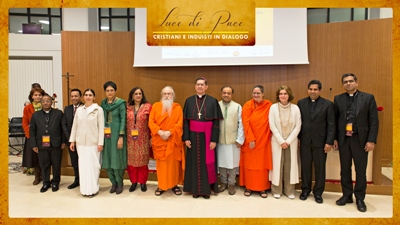
Dec 30, 2016 | Non categorizzato
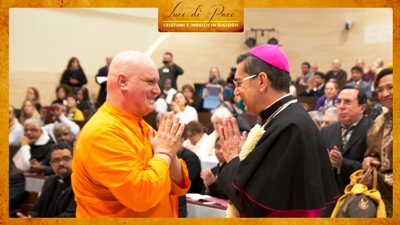 “So is craving, so is anger, they arise from the Rajas, the passion of the senses that devours everything” (Bhagavad Gita, 3:37)[1]. These words were chosen by Paramahamsa Svami Yogananda Ghiri, honorary president of the Italian Hindu Union (UII), in his welcome speech at the first Christian-Hindu Conference that crowded the main hall of the Pontifical Gregorian University on December 6, 20016. The conference was opened by Cardinal Jean-Louis Tauran, president of the Pontifical Council for Interreligious Dialogue. He was the promoter of the event in collaboration with the UII, the Italian Bishops Conference, Religions for Peace and the Focolare Movement. The cardinal expressed his joy for this moment of dialogue that was so promising and hopeful: “With our interior light that consumes and illumines, we will be able to direct our every step along the path of Peace.” Christians and Hindus were equally represented by 300 people who were animated by a desire for communion and understanding. Like emblems, a Lamp and Crucifix adorned the hall, both symbols of light. Light and Peace was the title of the day spent in dialogue and in the search of Peace. The words of Bishop Paul Gallagher, Secretary for [Vatican] Relations with States, were quite meaningful. After recalling the many conflicts around the world, he appealed to the international community to “overcome the logic of individualism, competition and the desire to be first” and asked that as soon as possible an “ethic of solidarity” be promoted. The presentation by Dr Naso from Sapienza University of Rome was also very significant. After presenting the data on the conflicts that had begun for religious reasons, he recalled that in many cases it was precisely the faith communities that became mediators in the peace process: in Norther Ireland, South Africa and Mozambique…. This makes one hope that “religions can really play a constructive role in conflict situations.”
“So is craving, so is anger, they arise from the Rajas, the passion of the senses that devours everything” (Bhagavad Gita, 3:37)[1]. These words were chosen by Paramahamsa Svami Yogananda Ghiri, honorary president of the Italian Hindu Union (UII), in his welcome speech at the first Christian-Hindu Conference that crowded the main hall of the Pontifical Gregorian University on December 6, 20016. The conference was opened by Cardinal Jean-Louis Tauran, president of the Pontifical Council for Interreligious Dialogue. He was the promoter of the event in collaboration with the UII, the Italian Bishops Conference, Religions for Peace and the Focolare Movement. The cardinal expressed his joy for this moment of dialogue that was so promising and hopeful: “With our interior light that consumes and illumines, we will be able to direct our every step along the path of Peace.” Christians and Hindus were equally represented by 300 people who were animated by a desire for communion and understanding. Like emblems, a Lamp and Crucifix adorned the hall, both symbols of light. Light and Peace was the title of the day spent in dialogue and in the search of Peace. The words of Bishop Paul Gallagher, Secretary for [Vatican] Relations with States, were quite meaningful. After recalling the many conflicts around the world, he appealed to the international community to “overcome the logic of individualism, competition and the desire to be first” and asked that as soon as possible an “ethic of solidarity” be promoted. The presentation by Dr Naso from Sapienza University of Rome was also very significant. After presenting the data on the conflicts that had begun for religious reasons, he recalled that in many cases it was precisely the faith communities that became mediators in the peace process: in Norther Ireland, South Africa and Mozambique…. This makes one hope that “religions can really play a constructive role in conflict situations.”  The report by Hindu psychologist Sangita Dubey on cultural differences and on the effects of migration on the psyche due to the different diet, language and mentality was lively and supported with personal experiences. “The challenge of dialogue,” stressed Svamini Hamsananda Ghiri (UII) in his presentation of the Hindu perspective, “is fear, indifference, fundamentalism and suspiscion of the other;” to pursue the common good it is necessary to “see the other as a brother and sister because they are generated by a Father God.” Paul Trianni, the University of St. Anselm, who was asked to give a Christian perspective, he concludes: “When two ancient civilizations encounter one another, two such profound spiritualities, they cannot but recognize the great wealth.” Two experiences of dialogue helped gave substance to the words that had been said: Fr Cesare Bovinelli, Camaldolese monk, recalled the great harmony that existed when it came to themes of environment at Assisi. A young person from the Focolare, Aileen Carneiro of India, described the many activities that were carried out between Hindu and Christian youth. Particularly striking was the synergy with the Ghandian Shanti Ashram group of Coimbatore, who started a project for solving poverty, following the approach of the Economy of Communion. Aileen explained that the dialogue of life must be held up, putting into practice the Golden Rule: “Do to others as you would have them do to you.” La Conferenza si è conclusa con uno spazio culturale di poesie, canti e danze sacre indù, in cui l’arte è diventata ulteriore motivo di comunione, degna cornice alla lettura delThe conference ended with presentation of poetry, Hindu sacred dance and song, in which art became a catalyst of communion, a worthy context for the reading of the Joint Statement. Anna Friso [1] (Our translation from Italian)
The report by Hindu psychologist Sangita Dubey on cultural differences and on the effects of migration on the psyche due to the different diet, language and mentality was lively and supported with personal experiences. “The challenge of dialogue,” stressed Svamini Hamsananda Ghiri (UII) in his presentation of the Hindu perspective, “is fear, indifference, fundamentalism and suspiscion of the other;” to pursue the common good it is necessary to “see the other as a brother and sister because they are generated by a Father God.” Paul Trianni, the University of St. Anselm, who was asked to give a Christian perspective, he concludes: “When two ancient civilizations encounter one another, two such profound spiritualities, they cannot but recognize the great wealth.” Two experiences of dialogue helped gave substance to the words that had been said: Fr Cesare Bovinelli, Camaldolese monk, recalled the great harmony that existed when it came to themes of environment at Assisi. A young person from the Focolare, Aileen Carneiro of India, described the many activities that were carried out between Hindu and Christian youth. Particularly striking was the synergy with the Ghandian Shanti Ashram group of Coimbatore, who started a project for solving poverty, following the approach of the Economy of Communion. Aileen explained that the dialogue of life must be held up, putting into practice the Golden Rule: “Do to others as you would have them do to you.” La Conferenza si è conclusa con uno spazio culturale di poesie, canti e danze sacre indù, in cui l’arte è diventata ulteriore motivo di comunione, degna cornice alla lettura delThe conference ended with presentation of poetry, Hindu sacred dance and song, in which art became a catalyst of communion, a worthy context for the reading of the Joint Statement. Anna Friso [1] (Our translation from Italian)
Dec 29, 2016 | Non categorizzato
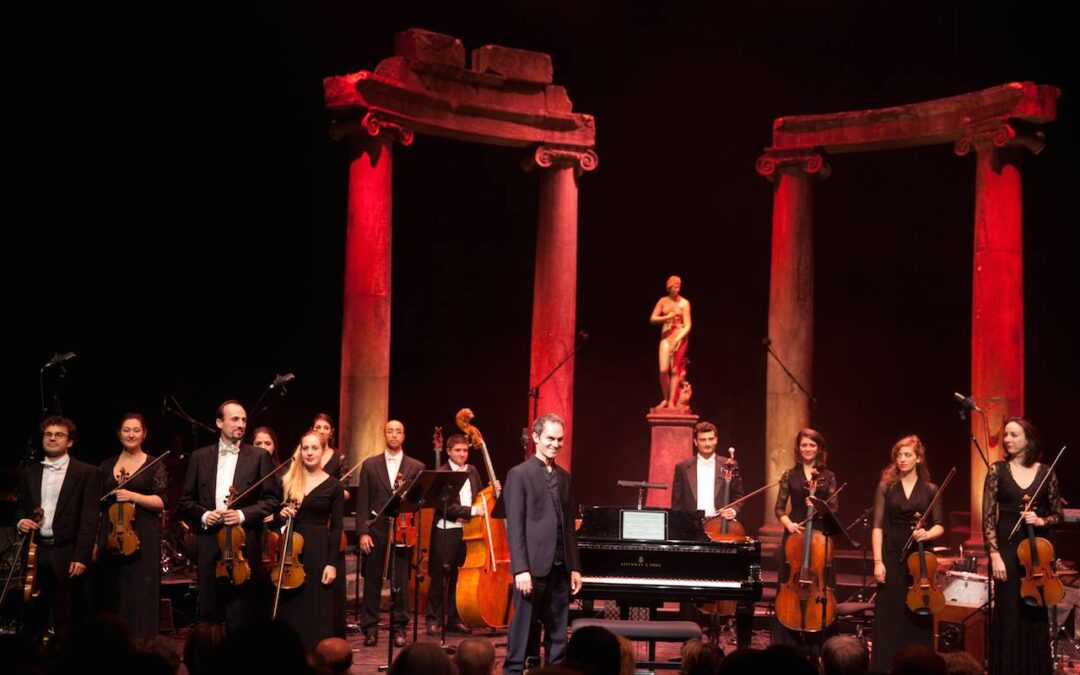
Dec 28, 2016 | Focolare Worldwide, Senza categoria
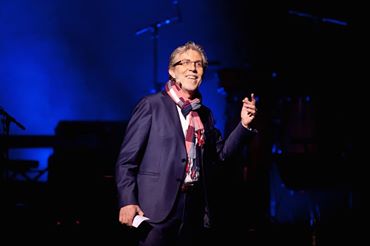
Rocco Femia, Director of the Radici cultural magazine
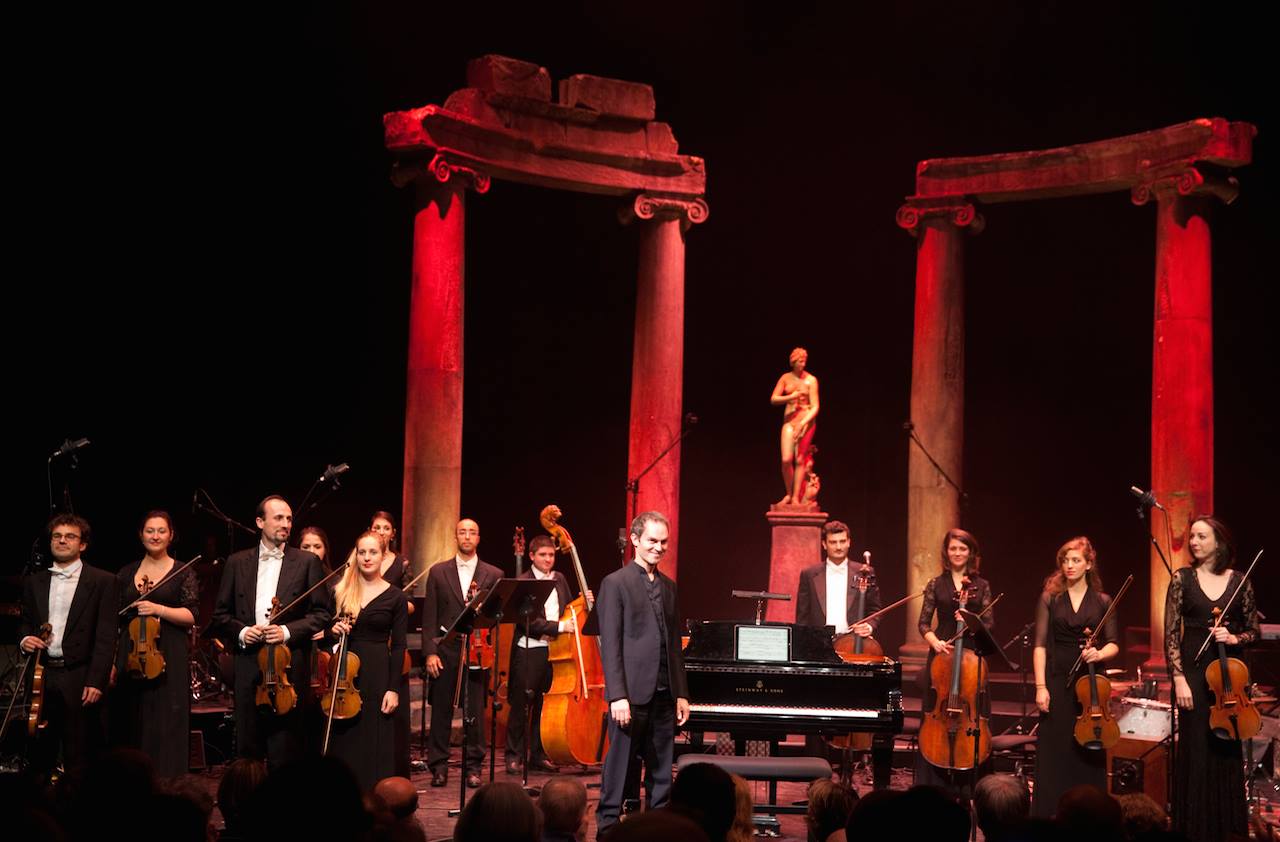 Fifty artists performed for free, confirming the strong sympathy is being felt for those who have suffered great loss. Artists included the OCCITANIA Chamber Music Ensemble, with music of Bach; the popular Italian song group, Incanto, which travels around the world with its musical titled ITALIANI, when we were the immigrants; The DALTIN Trio; Vicente and Rafael PRADAL from Spain; flemenco virtuoso guitarist Kiko Ruiz; the NACCARATO Jazz Trio; mandolin player Julien Martineau; the musical poems of the great Faber, performed by the Fabrizio DE ANDRÈ Band; the unforgettable music from the Italian films and the great finale and standing ovation for Cécile LIMAL who led La vita è bella… by Roberto Benigni. The music alternated with lively presentations by Rocco Femia, Director of RADICI magazine and by television journalists Marina Lorenzo and Patrick Noviello. In his thank-you speech, the director of RADICI did not want to forget anyone, conscious of the deep personal commitment of each person to the success of the event: from the technical crew to the artistic director, to the sound director, to the lights. Then there were the Deputy Mayor Francis Grass, the Italian Console to Toulouse, Fabrizio Mazza, the sponsors, benefactors, the media, and so on. Everyone “won the battle” together. And that is what I experienced as I shared a supper with the artists and technical staff after the concert. There is a strong bond among us, comprised of mutual trust, esteem, shared talent and solidarity – and a strong desire to make the world a more beautiful place. And I joyfully realized that this bond also included me and UWP. So, I wouldn’t be surprised if I discover that what I just experienced is only the beginning of a long and beneficial relationship of collaboration. In fact, when presenting the United World Project (UWP) during the concert, Rocco Femia highlighted the slogan of the RImPresa Project, to sum up what everyone seemed to be feeling: Hope vibrates; the future isn’t trembling.” Gustavo Clariá
Fifty artists performed for free, confirming the strong sympathy is being felt for those who have suffered great loss. Artists included the OCCITANIA Chamber Music Ensemble, with music of Bach; the popular Italian song group, Incanto, which travels around the world with its musical titled ITALIANI, when we were the immigrants; The DALTIN Trio; Vicente and Rafael PRADAL from Spain; flemenco virtuoso guitarist Kiko Ruiz; the NACCARATO Jazz Trio; mandolin player Julien Martineau; the musical poems of the great Faber, performed by the Fabrizio DE ANDRÈ Band; the unforgettable music from the Italian films and the great finale and standing ovation for Cécile LIMAL who led La vita è bella… by Roberto Benigni. The music alternated with lively presentations by Rocco Femia, Director of RADICI magazine and by television journalists Marina Lorenzo and Patrick Noviello. In his thank-you speech, the director of RADICI did not want to forget anyone, conscious of the deep personal commitment of each person to the success of the event: from the technical crew to the artistic director, to the sound director, to the lights. Then there were the Deputy Mayor Francis Grass, the Italian Console to Toulouse, Fabrizio Mazza, the sponsors, benefactors, the media, and so on. Everyone “won the battle” together. And that is what I experienced as I shared a supper with the artists and technical staff after the concert. There is a strong bond among us, comprised of mutual trust, esteem, shared talent and solidarity – and a strong desire to make the world a more beautiful place. And I joyfully realized that this bond also included me and UWP. So, I wouldn’t be surprised if I discover that what I just experienced is only the beginning of a long and beneficial relationship of collaboration. In fact, when presenting the United World Project (UWP) during the concert, Rocco Femia highlighted the slogan of the RImPresa Project, to sum up what everyone seemed to be feeling: Hope vibrates; the future isn’t trembling.” Gustavo Clariá
Dec 28, 2016 | Non categorizzato, Word of
A group of primary school children in Rome tried to put this Word of Life into practice: “Yesterday evening my mother and I went out for a meal with one of my Mum’s friends. I ordered a side dish with the meal, and then I wanted something for dessert. My mother said no. I was about to be angry, but I remembered that Jesus was in my mother so I just smiled instead.” “I went home after a tiring day. While I was watching television my brother took the remote control from me. I was very angry with him, but then I calmed down and let him watch TV.” “Today I answered back angrily when my father spoke to me. I saw that he was not happy about this, so I said sorry, and he forgave me.” Although there may not have been an exact link between the experiences these children told and the Word of Life they were living at the time, the push to love is itself the fruit of the Gospel put into practice. Any Word of Life we set out to live has the same effect. It changes our lives and puts the desire to be attentive to other people’s needs into our hearts, enabling us to be at the service of our brothers and sisters. It could not be otherwise: welcoming the Word and living it gives life to Jesus in us and helps us to act like him. This is what Paul is saying in this letter to the Corinthians. What urged St Paul to announce the Gospel and dedicate himself to the unity of his communities was the deep experience he had had with Jesus. He had felt loved and saved by Jesus, who had entered into his life to the point that nothing and no one could separate him from Jesus again. It was no longer he who lived, because Jesus lived in him. The thought that the Lord had loved him to the point of giving his life astounded Paul and stirred him into action. Its irresistible power urged him to do the same thing with the same love. Does the love of Christ urge us on with the same zeal? If we have truly experienced his love, we cannot fail to love in turn and courageously enter places where there is division, conflict and hatred so as to bring agreement, peace and unity. Love enables us to bring love beyond all obstacles, so as to create real connections with people, through understanding and sharing, and to find solutions together. It is not a question of choosing this or not. Unity must be pursued at all costs, without letting ourselves be hindered by false prudence, by difficulties or by potential clashes. Such an approach is urgently needed above all in ecumenism. This Word of Life has been chosen for this month in which we celebrate the Week of Prayer for Christian Unity. It can be lived together by Christians from different churches and communities so that we will all feel urged on by the love of Christ to seek each other out so as to re- establish unity. When Chiara Lubich spoke at the opening of the Second Ecumenical European Assembly at Graz, Austria on June 23, 1997, she affirmed, “An authentic Christian who wants reconciliation is someone who knows how to love others with God’s own charity, which makes us see Christ in each person, a charity that goes out towards all people (Jesus died for the whole human race). This charity always takes the initiative and enables us to love each person as ourselves, making us one with our brothers and sisters: in sufferings, joys, etc. The Churches too should love with this love.” May we too live the radicality of love with the simplicity and seriousness of those schoolchildren in Rome.
Fr. Fabio Ciardi, OMI
Each month the Focolare offers a Scripture passage as a guide and inspiration for daily living. Ever since the Focolare’s earliest years, founder Chiara Lubich (1920– 2008) wrote her own commentaries each month. Now Fr. Fabio Ciardi, OMI, theologian and close collaborator of Lubich, heads a group of scripture experts who have been entrusted with the task of writing the Word of Life commentaries, reflecting her thoughts and her spirituality of unity. This Word of Life is translated into 96 different languages and reaches several million people worldwide through the media. This monthly leaflet is also a supplement to Living City, the Focolare magazine (livingcitymagazine.com). For information and to subscribe to this leaflet or to the magazine, write to: Living City, 202 Comforter Blvd, Hyde Park, NY 12538; tel: 845-229-0496; e-mail: livingcity@livingcitymagazine.com. Visit focolare.org (international) or focolare.us (U.S.). © 2017 by Living City of the Focolare Movement, Inc. Read more: Lubich, Chiara. The Art of Loving. New City Press: Hyde Park, New York, 2010. Lubich, Chiara. “False Prudence,” Meditations. New City Press: Hyde Park, New York, 2005, p.33.
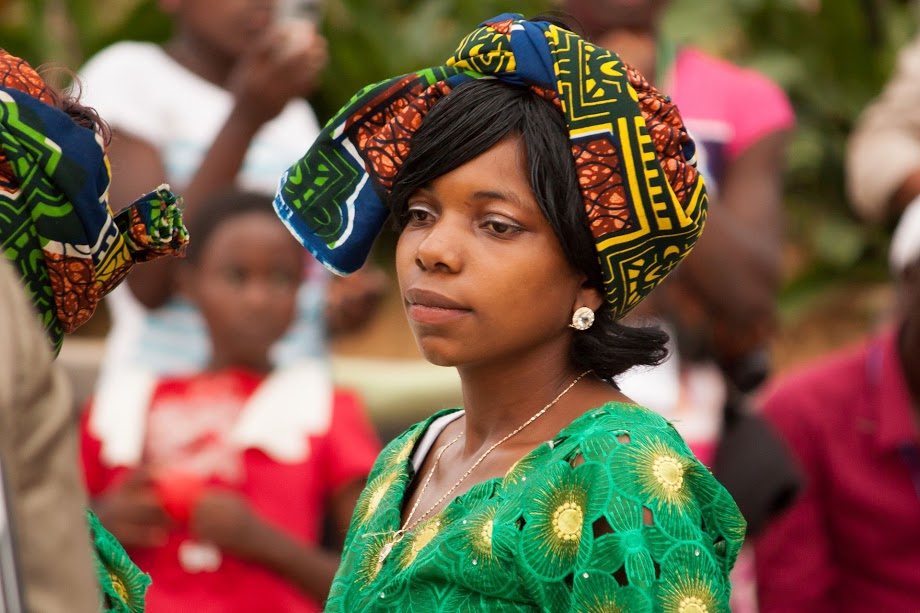
Dec 27, 2016 | Non categorizzato
Memories, gratitude and commitment were the keypoints of the celebrations in Fontem, Cameroon, for the 50th anniversary of the arrival of several focolarini in the Cameroon forest to begin a work in close harmony with the local Bangwa peo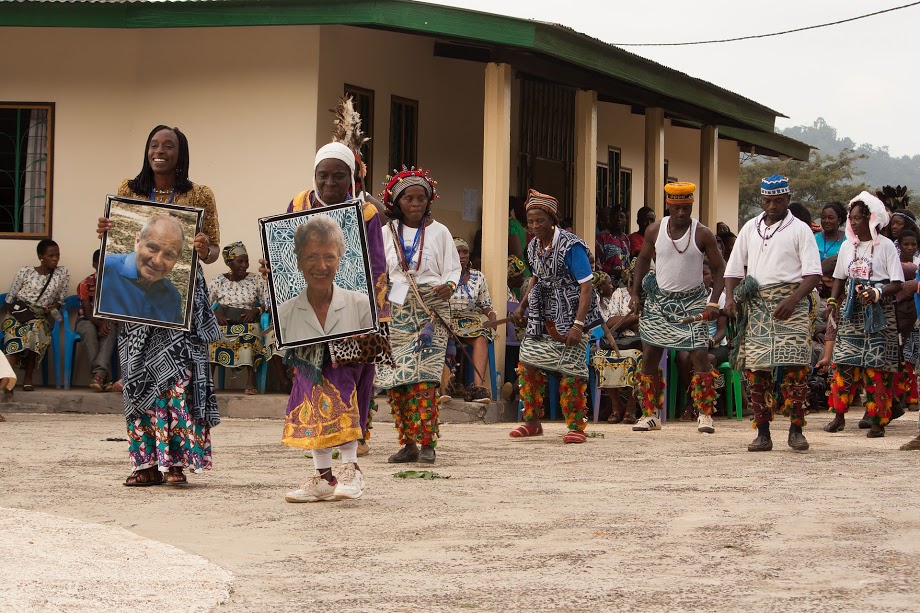 ple. In the opening remarks of civil and traditional authorities, and Focolare co-president Jesús Morán, the importance of those beginnings was remembered as well as the notable development that followed. The method used by the focolarini was also emphasized: dialogue with the local population and its traditional religion. This approach, which is typical of the Focolare, gave rise here and throughout the world to many positive experiences of interreligious dialogue, as Rita Mussallem from the Focolare’s Centre for Dialogue remembered in her address. The keynote address was given by Bishop Nkea Andrew, Bishop of the Mamfe Diocese who, through his own personal experience as a Bangwa, confirmed the precious value of this dialogue and its total conformity to the Gospel. One young Austrian priest who attended the events, commented: “The harmony between the values of African culture and Christian values is quite striking.” On the second day, which was dedicated to testimonies, one of the first nurses and first doctors emphasized how the close collaboration with the local people was a light for providing care to the sick that took into account the needs of both body and spirit. New and lasting friendships were born that brought healing. There were touching testimonies of accompanying people in the final moments of life. This was followed by the testimonies of several ex-students of the College: a police comissioner, a young priest and a nurse. They all said that along with the excellent scientific knowledge, they were also provided the possiblity of discovering those human and spiritual values that now make them happy human beings and appreciated by the Church and society. There was a presentation of the Economy of Communion in Cameroon, a project that will soon be launching an international conference on the continent. The third day was dedicated to giving thanks. Several presentations remembered all those, among the first, who gave their lives for Fontem like Piero Pasolini, Dr Lucio da Soglio, and so on…. Since they considered the others to be their equals, their work was marked by reciprocity and not assistenzialism. This was followed by traditional dances from five Fondoms (territories) that comprise Lebialem Division. More than 2,500 people were then served lunch thanks to the love of many “mamme” who had worked tirelessly, day and night, in the days leading up to the event. In the evening, there was a very moving musical presented by the children and students, which recounted the story of Fontem.
ple. In the opening remarks of civil and traditional authorities, and Focolare co-president Jesús Morán, the importance of those beginnings was remembered as well as the notable development that followed. The method used by the focolarini was also emphasized: dialogue with the local population and its traditional religion. This approach, which is typical of the Focolare, gave rise here and throughout the world to many positive experiences of interreligious dialogue, as Rita Mussallem from the Focolare’s Centre for Dialogue remembered in her address. The keynote address was given by Bishop Nkea Andrew, Bishop of the Mamfe Diocese who, through his own personal experience as a Bangwa, confirmed the precious value of this dialogue and its total conformity to the Gospel. One young Austrian priest who attended the events, commented: “The harmony between the values of African culture and Christian values is quite striking.” On the second day, which was dedicated to testimonies, one of the first nurses and first doctors emphasized how the close collaboration with the local people was a light for providing care to the sick that took into account the needs of both body and spirit. New and lasting friendships were born that brought healing. There were touching testimonies of accompanying people in the final moments of life. This was followed by the testimonies of several ex-students of the College: a police comissioner, a young priest and a nurse. They all said that along with the excellent scientific knowledge, they were also provided the possiblity of discovering those human and spiritual values that now make them happy human beings and appreciated by the Church and society. There was a presentation of the Economy of Communion in Cameroon, a project that will soon be launching an international conference on the continent. The third day was dedicated to giving thanks. Several presentations remembered all those, among the first, who gave their lives for Fontem like Piero Pasolini, Dr Lucio da Soglio, and so on…. Since they considered the others to be their equals, their work was marked by reciprocity and not assistenzialism. This was followed by traditional dances from five Fondoms (territories) that comprise Lebialem Division. More than 2,500 people were then served lunch thanks to the love of many “mamme” who had worked tirelessly, day and night, in the days leading up to the event. In the evening, there was a very moving musical presented by the children and students, which recounted the story of Fontem. On the fourth day, the presence of Our Lady Seat of Wisdom College in Fontem was celebrated. The bishop of Mamfe exhorted the many ex-students who had come from many countries of the world, to be aware of the gifts they had received and have made them ambassadors of unity wherever they may go. Charles Tasong, who was among the first Bangwa to know the Focolare commented: “During the Cry Die (commemorating Lucio Soglio, Lino D’armi and Doris Ronacher, who died recently after spending all their energy on Fontem), I realized that there is no longer the Focolare and the Bangwa; no longer the whites on one side, the blacks on the other – but one family. I want to embrace the challenge of bringing forward in my own life the powerful reality of unity that we experienced here in Fontem.” Biagio Sparapano
On the fourth day, the presence of Our Lady Seat of Wisdom College in Fontem was celebrated. The bishop of Mamfe exhorted the many ex-students who had come from many countries of the world, to be aware of the gifts they had received and have made them ambassadors of unity wherever they may go. Charles Tasong, who was among the first Bangwa to know the Focolare commented: “During the Cry Die (commemorating Lucio Soglio, Lino D’armi and Doris Ronacher, who died recently after spending all their energy on Fontem), I realized that there is no longer the Focolare and the Bangwa; no longer the whites on one side, the blacks on the other – but one family. I want to embrace the challenge of bringing forward in my own life the powerful reality of unity that we experienced here in Fontem.” Biagio Sparapano
Dec 26, 2016 | Non categorizzato
https://vimeo.com/195193687 It all started with a group of young girls and a green drum kit … The spark that gave life to Gen Verde was something unusual not so much because of the green drum kit but the wish that came with it… “to make a lot of noise”. That’s right. Blast it out, making the ideal of unity heard by all through music and performances, that is the soul of our whole life. That spark sped off, reaching all corners of the world and touching countless lives. Unity is best expressed when we sing it together. That’s what they wanted to say through this song. It tells it like it is. That message is just as relevant today as it was 50 years ago when it all began: each one of us is a spark. So let’s stand up, wherever we are, and turn up the volume of unity. Gen Verde – International Performing Arts Group Gen Rosso International Performing Arts Group

Dec 24, 2016 | Non categorizzato
 Christmas, Christmas, how often have we celebrated you with pure joy and unmatched ardour! But you find our hearts so frozen by the coldness of this world, that you cannot touch them as you would with your mysterious extraordinary message: GOD LOVES US, one by one and all together. This Love wrapped us round so completely that the Blessed Trinity resolved to send among us the Son of God made man, so our brief sojourn on this earth could be illuminated from now on by the Light that does not fade, and the absurdity of death in this life be transformed into a simple passing into life more full and eternal! We hope this year at least, that You, Christmas, may say to our hearts all you wish to say and find us ready, here and now to hear your voice.
Christmas, Christmas, how often have we celebrated you with pure joy and unmatched ardour! But you find our hearts so frozen by the coldness of this world, that you cannot touch them as you would with your mysterious extraordinary message: GOD LOVES US, one by one and all together. This Love wrapped us round so completely that the Blessed Trinity resolved to send among us the Son of God made man, so our brief sojourn on this earth could be illuminated from now on by the Light that does not fade, and the absurdity of death in this life be transformed into a simple passing into life more full and eternal! We hope this year at least, that You, Christmas, may say to our hearts all you wish to say and find us ready, here and now to hear your voice.

 While the last century knew the devastation of two deadly World Wars, the threat of nuclear war and a great number of other conflicts, today, sadly, we find ourselves engaged in a horrifying world war fought piecemeal. […] wars in different countries and continents; terrorism, organized crime and unforeseen acts of violence; the abuses suffered by migrants and victims of human trafficking; and the devastation of the environment. […]Violence is not the cure for our broken world. Countering violence with violence leads at best to forced migrations and enormous suffering, because vast amounts of resources are diverted to military ends and away from the everyday needs of young people, families experiencing hardship, the elderly, the infirm and the great majority of people in our world. At worst, it can lead to the death, physical and spiritual, of many people, if not of all. To be true followers of Jesus today also includes embracing his teaching about nonviolence. […] When Mother Teresa received the Nobel Peace Prize in 1979, she clearly stated her own message of active nonviolence: ‘We in our family don’t need bombs and guns, to destroy to bring peace – just get together, love one another… And we will be able to overcome all the evil that is in the world.’ […] She bowed down before those who were spent, left to die on the side of the road, seeing in them their God-given dignity; she made her voice heard before the powers of this world, so that they might recognize their guilt for the crimes – the crimes! – of poverty they created. […]The decisive and consistent practice of nonviolence has produced impressive results. The achievements of Mahatma Gandhi and Khan Abdul Ghaffar Khan in the liberation of India, and of Dr Martin Luther King Jr in combating racial discrimination will never be forgotten. Women in particular are often leaders of nonviolence, as for example, was Leymah Gbowee and the thousands of Liberian women, who organized pray-ins and nonviolent protest that resulted in high-level peace talks to end the second civil war in Liberia. Such efforts on behalf of the victims of injustice and violence are not the legacy of the Catholic Church alone, but are typical of many religious traditions, for which “compassion and nonviolence are essential elements pointing to the way of life. I emphatically reaffirm that “no religion is terrorist. Violence profanes the name of God. Let us never tire of repeating: The name of God cannot be used to justify violence. Peace alone is holy. Peace alone is holy, not war! If violence has its source in the human heart, then it is fundamental that nonviolence be practised before all else within families. This is part of that joy of love which I described last March in my Exhortation Amoris Laetitia, in the wake of two years of reflection by the Church on marriage and the family. The family is the indispensable crucible in which spouses, parents and children, brothers and sisters, learn to communicate and to show generous concern for one another, and in which frictions and even conflicts have to be resolved not by force but by dialogue, respect, concern for the good of the other, mercy and forgiveness. I plead for disarmament and for the prohibition and abolition of nuclear weapons: nuclear deterrence and the threat of mutual assured destruction are incapable of grounding such an ethics. I plead with equal urgency for an end to domestic violence and to the abuse of women and children. In 2017, may we dedicate ourselves prayerfully and actively to banishing violence from our hearts, words and deeds, and to becoming nonviolent people and to building nonviolent communities that care for our common home. Nothing is impossible if we turn to God in prayer. Everyone can be an artisan of peace” Read the whole message.
While the last century knew the devastation of two deadly World Wars, the threat of nuclear war and a great number of other conflicts, today, sadly, we find ourselves engaged in a horrifying world war fought piecemeal. […] wars in different countries and continents; terrorism, organized crime and unforeseen acts of violence; the abuses suffered by migrants and victims of human trafficking; and the devastation of the environment. […]Violence is not the cure for our broken world. Countering violence with violence leads at best to forced migrations and enormous suffering, because vast amounts of resources are diverted to military ends and away from the everyday needs of young people, families experiencing hardship, the elderly, the infirm and the great majority of people in our world. At worst, it can lead to the death, physical and spiritual, of many people, if not of all. To be true followers of Jesus today also includes embracing his teaching about nonviolence. […] When Mother Teresa received the Nobel Peace Prize in 1979, she clearly stated her own message of active nonviolence: ‘We in our family don’t need bombs and guns, to destroy to bring peace – just get together, love one another… And we will be able to overcome all the evil that is in the world.’ […] She bowed down before those who were spent, left to die on the side of the road, seeing in them their God-given dignity; she made her voice heard before the powers of this world, so that they might recognize their guilt for the crimes – the crimes! – of poverty they created. […]The decisive and consistent practice of nonviolence has produced impressive results. The achievements of Mahatma Gandhi and Khan Abdul Ghaffar Khan in the liberation of India, and of Dr Martin Luther King Jr in combating racial discrimination will never be forgotten. Women in particular are often leaders of nonviolence, as for example, was Leymah Gbowee and the thousands of Liberian women, who organized pray-ins and nonviolent protest that resulted in high-level peace talks to end the second civil war in Liberia. Such efforts on behalf of the victims of injustice and violence are not the legacy of the Catholic Church alone, but are typical of many religious traditions, for which “compassion and nonviolence are essential elements pointing to the way of life. I emphatically reaffirm that “no religion is terrorist. Violence profanes the name of God. Let us never tire of repeating: The name of God cannot be used to justify violence. Peace alone is holy. Peace alone is holy, not war! If violence has its source in the human heart, then it is fundamental that nonviolence be practised before all else within families. This is part of that joy of love which I described last March in my Exhortation Amoris Laetitia, in the wake of two years of reflection by the Church on marriage and the family. The family is the indispensable crucible in which spouses, parents and children, brothers and sisters, learn to communicate and to show generous concern for one another, and in which frictions and even conflicts have to be resolved not by force but by dialogue, respect, concern for the good of the other, mercy and forgiveness. I plead for disarmament and for the prohibition and abolition of nuclear weapons: nuclear deterrence and the threat of mutual assured destruction are incapable of grounding such an ethics. I plead with equal urgency for an end to domestic violence and to the abuse of women and children. In 2017, may we dedicate ourselves prayerfully and actively to banishing violence from our hearts, words and deeds, and to becoming nonviolent people and to building nonviolent communities that care for our common home. Nothing is impossible if we turn to God in prayer. Everyone can be an artisan of peace” Read the whole message. 



 “So is craving, so is anger, they arise from the Rajas, the passion of the senses that devours everything” (Bhagavad Gita, 3:37)
“So is craving, so is anger, they arise from the Rajas, the passion of the senses that devours everything” (Bhagavad Gita, 3:37)




